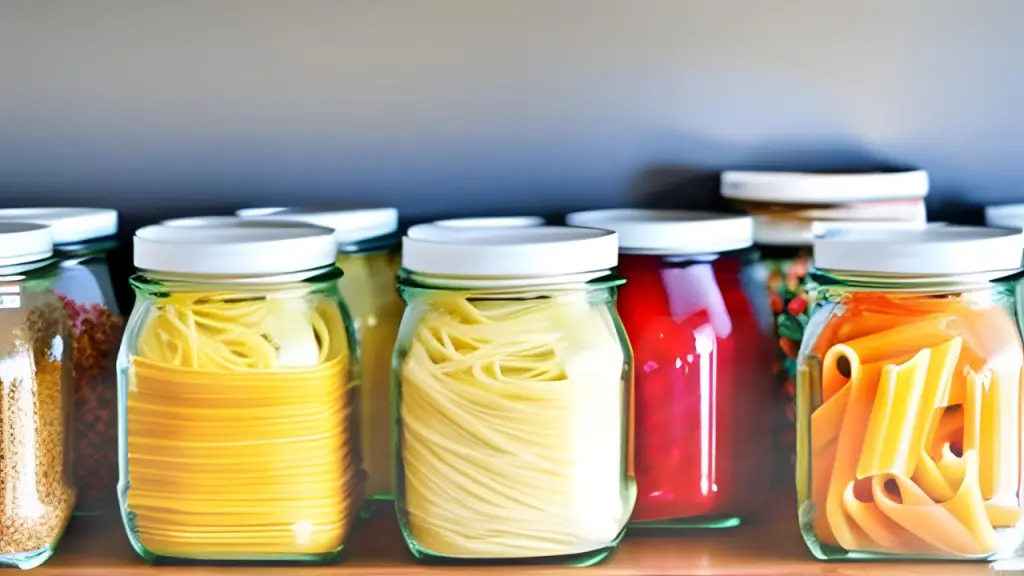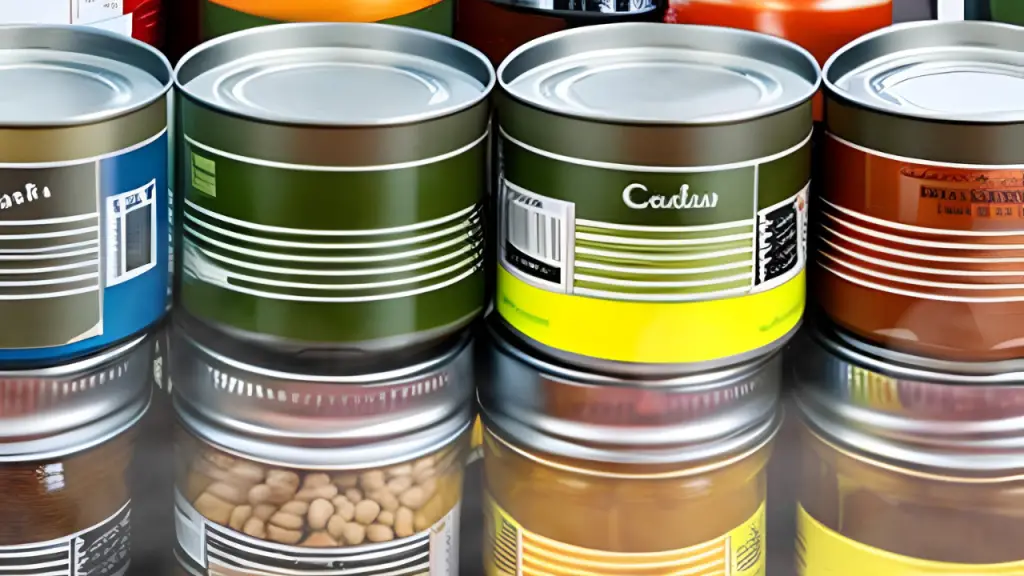
When storing canned goods in the pantry, proper organization and storage techniques are crucial to maintaining their freshness and quality. Canned goods provide convenience and versatility in the kitchen, allowing us to enjoy variously preserved foods throughout the year. However, goods can lose their taste and nutritional value without proper storage. In this article, we will explore practical methods and tips on how to store canned goods in the pantry to ensure they remain safe and delicious for an extended period.
How to Store Canned Goods in the Pantry?
Storing canned goods in the pantry requires attention to several important factors. Let’s explore these factors and discover the best practices for keeping your canned goods fresh and organized.
Proper Shelving
One of the primary considerations when storing canned goods in the pantry is the type of shelving you use. It’s essential to have sturdy and reliable shelves that can support the weight of the canned goods. Opt for adjustable shelves to accommodate different sizes of cans and maximize the available space in your pantry.
Ideal Temperature and Humidity
Maintaining the ideal temperature and humidity levels is crucial for preserving the quality of canned goods. The pantry should be cool, dry, and well-ventilated. Aim for a temperature between 50°F and 70°F (10°C and 21°C) and a humidity level below 50%. Avoid storing canned goods near heat sources or areas of high humidity, such as the stove or dishwasher.

Rotation System
A rotation system is vital to ensure that older canned goods are used before newer ones. When you purchase new canned goods, place them at the back of the shelf and bring the older ones to the front. This practice helps prevent cans from expiring or losing their quality unnoticed.
Organize by Category
To maintain a well-organized pantry:
- Categorize your canned goods.
- Group similar items, such as vegetables, fruits, soups, and sauces.
- Consider using clear plastic bins or wire baskets to separate and label different categories.
This organization system allows for easy visibility and access to canned goods.
Mind the Expiration Dates
Always check the expiration dates before storing canned goods in the pantry. Rotate your stock to ensure that the items with the closest expiration dates are used first. Discard any cans past their expiration date, as consuming expired canned goods can harm your health.
Consider a Can Organizer
A can organizer can be a practical solution if you frequently use canned goods and have limited space in your pantry. These organizers are designed to store cans in a stacked and easily accessible manner, optimizing the available space. They come in various sizes and styles, allowing you to choose one that suits your pantry layout.
Protect from Sunlight
Sunlight can degrade the quality of canned goods over time. To protect your canned goods from sunlight, store them in a dark area of the pantry or use opaque containers. If your pantry has windows, consider using curtains or blinds to block out the sunlight during the day.
FAQs
Now, let’s address some frequently asked questions about storing canned goods in the pantry:
Can I store canned goods after opening them?
Yes, you can store opened canned goods in the pantry. However, it’s essential to transfer the contents into a suitable airtight container before doing so. The original can may rust and contaminate the food, affecting its taste and safety. Label the container with the contents and date to keep track of its freshness.
How long can I store canned goods in the pantry?
Canned goods have a long shelf life, typically one to five years. However, it’s crucial to check the expiration dates before consuming them. Properly stored canned goods can remain safe to eat even after expiration, but their quality may deteriorate over time.
Can I freeze canned goods for long-term storage?
While it’s technically possible to freeze canned goods, it’s generally not recommended. Freezing can affect the texture and taste of the food, particularly for items with high water content. Canned goods are best stored in the pantry under proper conditions for optimal quality.
Should I rinse canned vegetables before storing them in the pantry?
It’s optional to rinse canned vegetables before storing them in the pantry. The canning process ensures the vegetables are clean and safe to eat. However, you may rinse them to remove any excess salt or brine before using them in recipes.
Can I store homemade canned goods in the pantry?
Homemade canned goods can be stored in the pantry if properly processed and sealed. Follow reliable canning recipes and techniques to ensure the safety of your homemade products. Check the seals of the jars regularly, and discard any cans with signs of spoilage or leakage.
Can I store dented cans in the pantry?
It’s generally recommended to avoid storing dented cans in the pantry. Dents can compromise the integrity of the can, leading to leaks or contamination. If you notice any dents or bulges in the can, it’s best to discard it to ensure your safety.
Conclusion
Properly storing canned goods in the pantry is essential for preserving their quality, taste, and nutritional value. By following the tips and techniques discussed in this article, you can ensure that your canned goods remain fresh and safe to consume for an extended period. Remember to consider the shelving, temperature, humidity, organization, and expiration dates.
Implementing a rotation system and protecting canned goods from sunlight will enhance their longevity. With these practices in place, you can enjoy the convenience and versatility of canned goods in your daily cooking.
